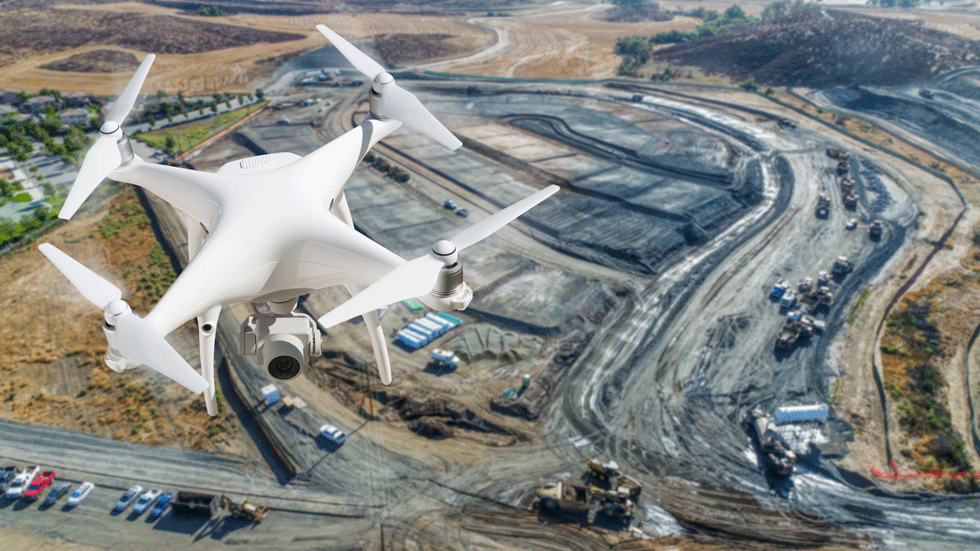

A year on from the January 2017 launch of its presidential innovation and research and development initiative, Athens-based Consolidated Contractors Company (CCC) is making progress on many fronts. It is exploring automation, robotics and 3D printing; the use of drones and building information management (BIM); the development of affordable housing and off-grid solar cabins; renewables; and waste-to-energy systems.
Each innovation area is driven by a multi-disciplinary committee of CCC experts selected from senior members of its 190,000-strong workforce, in some cases in collaboration with start-up companies.
Forward-thinking
“The whole initiative was inspired by the World Economic Forum report on shaping the future of construction, which we are participating in,” says Aref Boualwan, manager for management information systems (MIS) and business process re-engineering at CCC, and an executive board member of CCT International, which provides construction project control and management solutions to CCC.
“After researching 600 start-up companies, we identified 15 and shortlisted five to run pilot projects with,” he says, noting that by partnering with start-ups, CCC can benefit from utilising innovative technologies. In turn, the start-up companies benefit from being able to test their innovations at scale.
Practical application
The committee for 3D printing, for example, quickly realised that challenges around material properties mean that 3D printing of buildings on a commercial scale remains a long-term proposal.
However, the company is actively examining how the technology might best be applied in the short to medium term. Working with UAE start-up Immensa Technology Labs, CCC is investigating the creation of 3D printed moulds and spare parts. Established in 2016, Immensa facilitates the practical deployment of 3D printing technology in the UAE. Examples include the production of urban furniture, formwork and structural walls. There are many potential applications. On a least one major project under construction by CCC in the UAE, the curved walls could be built more quickly using 3D printing if the technology matures.
Robotics committee
This is not the only area of automation that CCC is investigating. A committee for robotics is seeking to replace labour-intensive tasks with machinery, including an automatic rendering machine for plastering works, capable of placing mortar smoothly at the required thickness. In tests in Dubai, the technology had led to a reduction in waste, elimination of scaffolding and improved alignment. On another front, the robotics committee is looking at implementing an autonomous rebar-tying robot for steel reinforcement.
Drones, too, are expected to be present on CCC’s construction sites in future. Its committee for unmanned aerial vehicles has successfully used light detecting and ranging technology in Oman to survey a three-square-kilometre site to 5cm accuracy in just 30 minutes. This is now being replicated on other projects. “We have proved that it is faster, cheaper and more accurate than traditional surveying. The challenge is the requirements for training, flight permissions, regulations, client approvals and weather conditions,” says Boualwan.
Safety check
Labour safety is a key area of focus in a pilot project under development with Dubai-based WakeCap. The firm designs and manufactures custom-made harnesses that connect to construction helmets and track key data such as location and worker responses to emergencies. Using this data means scheduling can be optimised, staff can be managed according to their well-being, and emergency responses are faster.
The firm is also developing off-grid solar-powered accommodation units for its workforce, and this is just the start of CCC’s planned investment into renewable energy and battery technologies.
[caption id="attachment_295081" align="alignleft" width="980"] CCC is developing off-grid solar-powered accommodation units for its workforce[/caption]
CCC is developing off-grid solar-powered accommodation units for its workforce[/caption]
Project control
Finally, CCC is taking the use of BIM to the next level by leveraging its experience on projects such as Abu Dhabi’s midfield terminal complex. “We have a CCC BIM centre that offers BIM services for the full project lifecycle. The next step is what we call BIM-based project control,” says Boualwan.
As yet, BIM has not been cascaded into construction workface planning, but CCC is changing this by using BIM to divide the construction project into several construction work packages (CWP) organised by geographic area. Each of these is then divided into several installation work packages.
“Each CWP has a front-end loading register that list all drawings, material, resources and other constraints needed to build the CWP, which is not allowed to proceed unless all elements of the register are available. This prevents out of sequence progress and identifies sources of delay,” explains Boualwan.
Importantly, this methodology creates an extra level of assurance for clients between design and construction, mitigating the common issue of incomplete design information ahead of building.
 Aref Boualwan is the manager for MIS and business process re-engineering at CCC, and an executive board member of CCT International Jan 2016 - present: Advisory council member at the Lebanese American University Jan 2006 - Dec 2011: Manager of development and business intelligence at CCC Jul 2001 - Dec 2005: Head of software development at CCC Apr 1998 - Jun 2001: Senior software developer – document and content management applications at CCC |
Words by Bernadette Ballantyne
You might also like...

TotalEnergies awards Marsa LNG contracts
23 April 2024

Neom tenders Oxagon health centre contract
23 April 2024

Neom hydro project moves to prequalification
23 April 2024

Contractors complete 25% of Neom spine tunnels
23 April 2024
A MEED Subscription...
Subscribe or upgrade your current MEED.com package to support your strategic planning with the MENA region’s best source of business information. Proceed to our online shop below to find out more about the features in each package.




